

On February 6 and 7, the High Qualification Commission of Judges (HQCJ), in conjunction with the Public Council of International Experts (PCIE), will hold special meetings to weed out unworthy candidates for the positions of HACC Judges.
HQCJ and PCIE members will assess candidates for their integrity and professionalism, and any reasonable doubt about compliance with these criteria may put an end to further participation in the competition.
Only 7 candidates made it to the PCIE interview stage. Therefore, Transparency International Ukraine has studied all available information about the contestants.
TI Ukraine’s experts searched for information about the candidates in their declarations, mass media materials, state registers, and other databases, as well as in the dossiers of the contestants received from the HQCJ at our request.
It is important that we assess each questionable fact about a contestant through the lens of the Unified Indicators for Assessing Judicial Integrity and Professional Ethics of a Judge (candidate for the position of the Judge), which will also be used by HQCJ and PCIE members.
The information we found about the candidates was very diverse: from allegedly undeclared property and disciplinary cases to ties to dingy individuals and visits to Russia. The list of profiles is organized in alphabetical order.
Yurii Bodnaruk
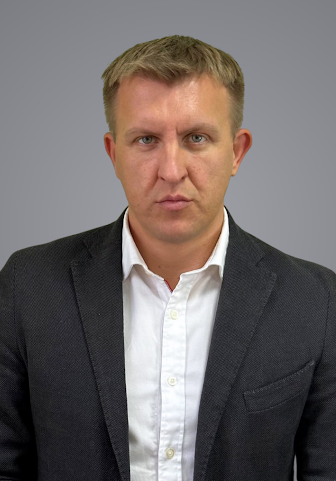 Assistant Judge of the Appeals Chamber of the High Anti-Corruption Court, PhD in Law
Assistant Judge of the Appeals Chamber of the High Anti-Corruption Court, PhD in Law
Education and research. In 2004, he graduated from Odesa National Law Academy. In 2008, he earned an academic degree of PhD in Law on “Tax Proceedings in Ukraine: Theoretical and Legal Principles.”
Professional life. In 2004, he started practicing law at enterprises, and since 2008 he has been working at S&S Legal Consulting LLC. In 2009, he was appointed Deputy Director of the company and later became the Director. From 2008 to 2019, he taught administrative and financial law at the National University “Odesa Law Academy.” In 2012, he was promoted to associate professor.
From 2019 to the present day, Yurii Volodymyrovych Bodnaruk has been an Assistant Judge of the Appeals Chamber of the High Anti-Corruption Court.
Other important facts. Yurii Bodnaruk has repeatedly applied to the HQCJ to admit him to participate in the competition for the position of the Judge, including the last time, on September 25, 2019, for the position of the Judge of the Odesa Court of Appeal. However, the above competition was not held due to the termination of powers of HQCJ members.
The candidate also participated in the competition for the HQCJ member. On April 11, 2023, the Competition Commission sent recommendations to the High Council of Justice (HCJ) regarding 32 candidates for the positions of HQCJ members, including Yurii Bodnaruk. However, on June 1, 2023, the HCJ, while not disputing the compliance with the criteria, denied his appointment, as no member of the Council cast a vote in favor of Mr. Bodnaruk’s candidacy.
The integrity of the candidate
Legality of sources of funds for buying an apartment in Odesa
During the competition for the position of HQCJ member, the public raised many questions to the candidate. On December 16, 2020, the candidate acquired ownership of an apartment of 78.8 square meters in Odesa worth UAH 1,170,000 (USD 42,000). In his written explanation, he stated that he had purchased the apartment from his savings for the period 2004–2016 of “at least USD 72,000.” At the same time, in his 2015 declarations, the candidate listed savings of $20,000 (UAH 488,000) and UAH 50,000, while his income for 2016 amounted to only UAH 130,000. In other words, as of 2016, the candidate had a total of UAH 180,000 and $20,000 (UAH 488,000) in cash assets, which was significantly less than the value of the apartment and the savings he mentioned.
During the interview, Mr. Bodnaruk, in response to a question about the cost of the apartment and the source of funds for its purchase, said that he had purchased the apartment as non-residential premises and subsequently transferred it to the housing stock. The candidate, in particular, referred to the practice whereby developers “in order to circumvent some restrictions, they make the top floor as non-residential premises in the documents to circumvent the restrictions on the number of floors and actually sell these premises at a lower price.”
This raises questions for the candidate:
- Can Mr. Bodnaruk explain the discrepancy between the savings declared in 2015 ($20,000 and UAH 50,000) and those indicated in the explanations ($72,000)?
- Can the candidate provide documentary evidence of the source of funds for the purchase of the apartment?
- Does the candidate consider it virtuous to use the scheme of purchasing a residential property as non-residential to “circumvent restrictions”?
Professional ethics of the candidate
Working for a company that was featured in a journalistic investigation
In 2008–2010, Mr. Bodnaruk worked at S&S Legal Consulting LLC, where he had rapid career growth from senior associate to director. According to media reports, the company was founded in 2008 by Yurii Sukhov and Suren Sardarian, who were featured in a story about alleged corruption at the State Inspectorate for Price Control.
When applying for the HACC judicial competition, Bodnaruk received a recommendation precisely from Yurii Sukhov, the former Commissioner for Anti-Corruption Policy in 2009–2010. Currently, the latter is a defense counsel in cases No. 758/5744/17 and No. 991/4668/23, where the Judge presiding over the appellate review was the Judge with whom the candidate is currently working as an assistant, and in cases No. 991/7739/23, No. 991/6021/23, No. 760/8412/18, and No. 991/2288/21, the same Judge was a member of the panel.
The Regulation on Judge Assistants obliges them to prevent conflicts of interest, take measures to resolve them, refrain from acting in conditions of a real conflict of interest, and notify their supervisors of such conflicts.
This raises questions for the candidate:
- How can he explain such rapid career growth (from senior associate to director) during 2008–2010 at S&S Legal Consulting LLC? What were his functional responsibilities as the director?
- Why did the candidate choose Yurii Sukhov as his recommender? Doesn’t he see this as a conflict of interest, given that Mr. Sukhov is a defense counsel in cases heard by the Judge that Mr. Bodnaruk is assistant to? What measures did he take to resolve this situation?
- Given that the candidate is applying for a position in the Anti-Corruption Court, how does he assess his professional ties to persons who have been featured in journalistic investigations into corruption?
Violation of road traffic regulations and termination of a road traffic accident case
In 2019, the candidate was involved in a road traffic accident, and the case was terminated due to the expiration of the statute of limitations for 9 days. It was in court for almost 3 months. According to some publications, the judge who heard the case had a practice of systematically terminating such cases due to the expiration of the statute of limitations. Also, according to the dossier, Mr. Bodnaruk was brought to administrative liability 7 times for various traffic violations from 2022 to 2024.
This raises questions for the candidate:
- Does the candidate think it is fair to terminate a road traffic accident case due to the expiration of the statute of limitations for administrative liability?
- How does the candidate assess his legal awareness and readiness to comply with road traffic regulations, taking into account 7 violations within 3 years?
Assistant Judge of the Appeals Chamber of the High Anti-Corruption Court, PhD in Law
Oleh Kimstachov
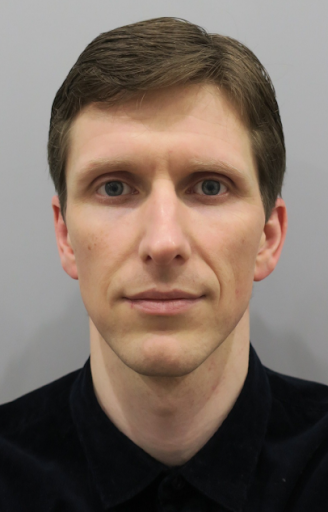 Assistant Judge of the High Anti-Corruption Court, former Judge of the Uman Municipal and District Court
Assistant Judge of the High Anti-Corruption Court, former Judge of the Uman Municipal and District Court
Education and research. In 2007, he graduated from Yaroslav Mudryi National Law Academy of Ukraine. In 2011, he graduated from the Faculty of Professional Judges of the same university.
Professional life. From 2006 to 2010, Oleh Kimstachov was a deputy of the Pechenizka village council in Kharkiv Oblast.
From 2007 to 2010, he served as a legal advisor to Pechenizke LLC. From 2009 to 2010, he also worked as a legal advisor to the staff of the Pechenizka District State Administration, and further, starting in 2011, he received unemployment benefits.
In 2012, the candidate was appointed for 5 years as a Judge of the Uman Municipal and District Court of Cherkasy Oblast. He resigned in 2018 at his own request during the qualification assessment.
In 2019, Mr. Kimstachov received his lawyer’s license, and almost immediately afterward he was appointed an Assistant Judge of the High Anti-Corruption Court, where he still works.
Other important facts. In 2016, the HQCJ reprimanded Judge Kimstachov for violating the reasonable duration of consideration of cases. In 2018, the HCJ directly issued him a severe reprimand for the same violation. Subsequently, the HCJ overturned the latter decision, as such violations were caused by objective reasons.
The candidate took part in the first selection of HACC Judges in 2018, but the PCIE and HQCJ rejected him because he had held a mandate as a deputy for the past 10 years. In addition, in 2018, the Public Integrity Council found evidence that Judge Kimstachov did not meet the criteria of integrity and professional ethics.
Since 2023, Oleh Kimstachov has also been participating in the competition for appellate court judges, which is still ongoing.
The integrity of the candidate
The candidate, as a judge, considered a case involving a fellow judge.
In 2018, the PIC established that the candidate, as a Judge of the Uman Municipal and District Court, had considered case No. 705/47/17 under the lawsuit filed by Tetiana Chernysh. At the same time, Tetiana Chernysh was a serving Judge of the same Court, and such actions indicated a clear violation of procedural rules, as well as decision-making in conditions of a conflict of interest.
This raises questions for the candidate:
- How can he explain such actions and decisions as part of the consideration of case No. 705/47/17 under the lawsuit filed by a serving Judge of the same Court, Tetiana Chernysh?
- What measures has the candidate taken to prevent such situations in the future?
Professional ethics of the candidate
Resignation after initiation of disciplinary proceedings
Since 2017, Mr. Kimstachov, as a judge, has been undergoing a qualification assessment for his position. Later, in 2018, the HQCJ suspended the assessment, as the HCJ initiated a disciplinary complaint against the candidate. At the same time, Mr. Kimstachov resigned from his position as a judge at his own request before the issue of disciplinary liability was resolved and before the qualification assessment was completed.
This raises questions for the candidate:
- Why did he decide to end his judicial career prematurely? Was such resignation related to the consideration of a disciplinary complaint against him and his qualification assessment?
Appealing against HQCJ and PCIE decisions on the candidate in 2019
In 2019, the PCIE and HQCJ decided to terminate Mr. Kimstachov’s participation in the first HACC competition due to his past mandate as a local deputy. The candidate unsuccessfully appealed that decision to the Supreme Court. At the same time, the court noted that in his statement of claim, Mr. Kimstachov did not mention in any way his mandate as a deputy of the local council, which expressly prohibits him from becoming a HACC Judge.
This raises questions for the candidate:
- Why did he not mention in his statement of claim the information about his mandate as a deputy of the local council?
- Why did the candidate decide to go to court to appeal this decision, given the legally binding prohibition on a person who has held a deputy’s mandate for the last 10 years to hold the position of a judge?
Disciplinary liability for arbitrary delays in consideration of cases
In 2016, the candidate, as a Judge of the Uman Municipal and District Court, was held disciplinarily liable by the HQCJ for considering a case with a material breach of reasonable time limits. By doing so, the Judge obviously brought into question his integrity.
This raises questions for the candidate:
- What organizational measures does the candidate plan to implement to ensure timely consideration of cases if appointed as a HACC Judge?
Motivation to participate in the HACC competition
The candidate is a participant in two competitions for a judicial position simultaneously: the competition for the positions of HACC Judges and the competition for the positions of Judges of appellate courts.
This raises questions for the candidate:
- Which of his motivations prevails: to be a HACC Judge or an appellate court judge?
Assistant Judge of the High Anti-Corruption Court, former Judge of the Uman Municipal and District Court
Kateryna Kotelva (Zyma)
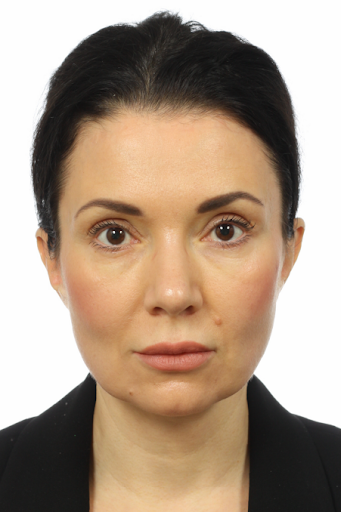 Judge of the Halytskyi District Court of Lviv
Judge of the Halytskyi District Court of Lviv
Education and research. In 2002, she graduated from Donetsk National University. In 2004, she completed her master’s program at the National Academy of the State Tax Service of Ukraine.
Professional life. The candidate began her career in 2000 as a legal advisor at her father’s Underwater Fantasies International Children’s Crafts Festival LLC.
In 2002, she received her license to practice law and has been practicing law ever since. In parallel to her work as a lawyer, in 2010–2011 she also worked as a legal advisor at the O. F. Zasiadko Mine. After that, from 2012 to 2013, she worked as a legal advisor at GPK Engineering LLC.
In 2013, she was appointed as a Judge of the Voroshylovskyi District Court of Donetsk for a five-year term.
In 2015, the candidate was transferred to work at the Halytskyi District Court of Lviv. She administered justice until the end of her term of office, after which she was seconded to the National School of Judges of Ukraine to support educational processes and introduce innovations in judicial practice.
Other important facts. In 2017, the HCJ punished Judge Kotelva by discharging her from office for the unlawful denial of access to justice. Subsequently, in 2018, the HCJ changed its decision regarding the penalty imposed and replaced the discharge from office with a six-month suspension with a referral to the National School of Judges for a refresher course.
The integrity of the candidate
Property and alleged dealings in the temporarily occupied territory of Ukraine
The 2023 e-declaration of candidate Kateryna Kotelva shows that she jointly owns two apartments in Donetsk, which is currently under temporary occupation. In addition, the candidate also spent a significant part of her professional career in Donetsk.
This raises questions for the candidate:
- Does she maintain social ties with people in the temporarily occupied territories of Ukraine? Will such social ties hinder the administration of justice in the HACC?
- Is the candidate aware of the fate of the real estate located in the temporarily occupied territories? Is there anyone overseeing the said real estate?
- Do the candidate’s close relatives conduct business or other activities in the temporarily occupied territory?
Professionalism of the candidate
Disciplinary liability for denial of access to justice
In 2017, the HCJ imposed a disciplinary sanction on Kateryna Kotelva as a judge in the form of discharge from office for the unlawful denial of access to justice. Subsequently, in 2018, the HCJ changed its decision regarding the penalty imposed and replaced the discharge from office with a six-month suspension with a referral to the National School of Judges for a refresher course.
This raises questions for the candidate:
What additional measures did Mrs. Kotelva take, in addition to training at the National School of Judges, to prevent similar situations in the future and to avoid such unscrupulous mistakes?
Judge of the Halytskyi District Court of Lviv
Kyrylo Lehkykh
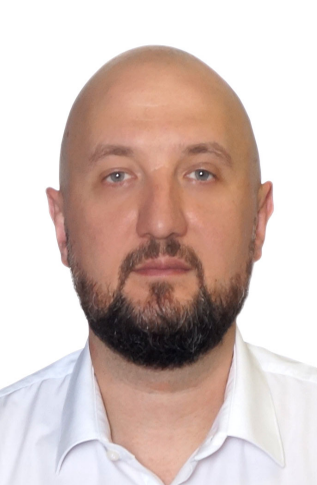 Associate Professor of the Department of Justice at the Institute of Law of Taras Shevchenko National University of Kyiv, defense attorney, PhD in Law
Associate Professor of the Department of Justice at the Institute of Law of Taras Shevchenko National University of Kyiv, defense attorney, PhD in Law
Education and research. In 2005, he graduated from the Academy of Advocacy of Ukraine. In 2009, he defended his PhD thesis on the subject “General Scientific and Procedural Issues of Forensic Legal Examination in the Judicial Procedure in Ukraine.”
Professional life. From 2002 to 2007, he served as a legal advisor to Polimpex PrJSC. In 2004–2005, he was also a legal advisor to RAG Russian Advocates Group LLC (now Stolychnyi Radnyk LLC). In 2005, he worked at Persona Grata Company LLC.
After obtaining his license to practice law in 2008, he continued to work as a legal counsel at Nistas-Ukraine, Burova Tekhnika, Ukrnaftagazservis, and BTF-Coiltubing LLC. From 2008 to 2009, he was also a director of InterbusinessConsult LLC. In 2002–2020, he was engaged in business activity as an individual entrepreneur.
From 2011 to 2023, Kyrylo Lehkykh worked as an Associate Professor and Head of the Department at the Academy of Advocacy of Ukraine LLC. Since September 2023, he has been an Associate Professor at the Institute of Law of Taras Shevchenko National University of Kyiv.
Other important facts. In 2020–2022, the candidate was a member of the SBI Disciplinary Commission, and in 2022–2023 he was a member of the Commission that elected the NABU Director.
Kyrylo Lehkykh participated in the competitive selections for the position of a HACC Judge in 2018–2019, for the position at the Prosecutor General’s Office (PGO), and for the position of an appellate court judge. However, he was unable to successfully complete any of the competitions.
The integrity of the candidate
Mother’s gift of UAH 2 million
Mr. Lehkykh’s e-declarations for 2019 and 2020 show that since the previous year, his savings of $5,000 were supplemented by another $41,500 in cash (UAH 1.13 million) in 2020. Since his declared earnings for 2020 amounted to only UAH 706,000, the candidate probably received those savings from his mother, Tetiana Lehkykh, who gifted him UAH 2,160,000.
This raises questions for the candidate:
- What are the sources of his monetary assets, including cash savings in U.S. dollars?
- What are the sources of funds gifted by his mother? Did she have the opportunity to make such a significant gift?
Candidate’s father’s connection to a bribery case
According to mass media reports, the candidate’s father, Valerii Lehkykh, had close contacts with the business community in Poltava Oblast and especially with the former Head of the Poltava Oblast State Administration, Valerii Holovko. In March 2019, the NABU searched the territory owned by NGO Na Sadovii (formerly — Russkiy Par), led by the candidate’s father, Valerii Lehkykh. Valerii Holovko was the founder of the NGO Russkiy Par. Moreover, during the search of the NGO’s premises, NABU found a modified Geländewagen, and Kyrylo Lehkykh was the defense attorney of the defendant Mr. Holovko at the HACC.
This raises questions for the candidate:
- Under what circumstances did he decide to become Valerii Holovko’s defense attorney? Could the cooperation of Mr. Lehkykh’s father with state-owned enterprises and Valerii Holovko be a factor that could affect the impartiality of the candidate himself?
- In the candidate’s opinion, will his father’s ties to business structures and his participation in the high-profile NGO Na Sadovii (formerly — Russkiy Par) affect his reputation as a potential HACC Judge?
- How can the candidate comment on the allegation that his participation in the commission for the election of the NABU Director could be a conflict of interest due to his role as an attorney of Valerii Holovko in court, whose case is being investigated by NABU detectives?
Professional ethics of the candidate
Candidate’s work in the Russian Advocates Group and father’s management of the Russkiy Par
From 2012 to 2022, the candidate’s father was the head of the NGO Russkiy Par, which changed its name in late 2013 to Na Sadovii. In addition, in 2004–2005, the candidate worked as a legal advisor at RAG Russian Advocates Group LLC, which in 2015 was renamed Stolychnyi Radnyk LLC.
This raises questions for the candidate:
- What was the reason for the candidate’s work at RAG Russian Advocates Group LLC? Didn’t it reflect the candidate’s political views? Doesn’t it reflect the candidate’s current political views?
Income from a company with a Belarusian trace
The 2023 e-declarations of the candidate Kyrylo Lehkykh show that he received income in 2023 in the amount of UAH 109,800 from BTF-Coiltubing LLC, which is 50%-owned by BIT Projects LLC, a Belarusian company.
This raises questions for the candidate:
- How does he assess the possibility of cooperating with a company owned by an accomplice of the aggressor state, Belarus?
Possible undeclared cooperation with the GORO legal Law Firm
The website of GORO legal Law Firm contains information that the candidate is an advisor to the Criminal Law Department. At the same time, such information is not reflected in the questionnaire of Mr. Lehkykh.
This raises questions for the candidate:
- Is this information true? If the candidate cooperates with this organization, then what are the conditions of such cooperation, and why is information about such cooperation not reflected in the questionnaire for the position of the judge?
Professionalism of the candidate
Controversial approaches to the issue of proportionality of bail
In a public speech to students, Kyrylo Lehkykh noted that he was opposed to high bail amounts, and any measure of restraint not involving placement in custody imposed a risk of escaping. But, in his opinion, this risk was justified because we called ourselves a democratic state.
This raises questions for the candidate:
- What approach does he plan to use as the Judge when setting an amount of bail? How will the candidate ensure a balance between ensuring the rights of the suspect (accused) and the need to guarantee the fulfillment of procedural obligations?
Associate Professor of the Department of Justice at the Institute of Law of Taras Shevchenko National University of Kyiv, defense attorney, PhD in Law
Tetiana Lytvynko
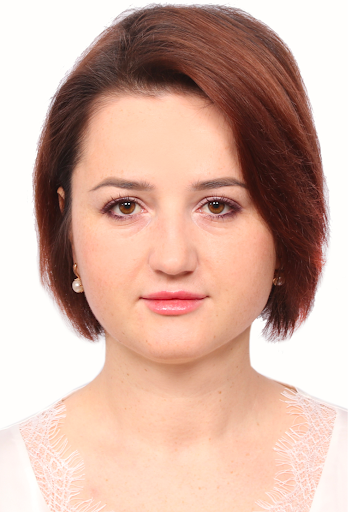 Judge of the Shostka Municipal and District Court of Sumy Oblast
Judge of the Shostka Municipal and District Court of Sumy Oblast
Education and research. In 2007, she graduated from the Interregional Academy of Personnel Management in Kyiv with a degree in legal studies.
Professional life. She began her career in 2007 as a senior consultant at the Department for Citizens Reception and Preliminary Appeals Review at the Kyiv Court of Appeal. Later, she was transferred to a number of different positions there: head of the department, assistant judge, assistant to the court chairman, deputy chief of court staff, etc.
Since 2016, she has been a Judge of the Shostka Municipal and District Court of Sumy Oblast, and from 2017 to 2020 she served as the chairperson of the Court.
Other important facts. In 2019, the candidate took part in the competition for the position of an appellate court judge, but the selection was canceled. She applied again for the same competition in 2023 and continues participation therein.
The integrity of the candidate
Apartment of 60 sq. m in Shostka for a fairly low price
The 2023 e-declaration of candidate Tetiana Lytvynko shows that in 2019 she purchased an apartment of 60.7 sq. m in Shostka for UAH 183,800. However, such a low cost of real estate needs to be explained.
This raises questions for the candidate:
- How did she manage to buy a 60.7-square-meter apartment for such a low price?
Professional ethics of the candidate
Subordination and appointment of a person featuring in a corruption case
According to the candidate’s profile, since 2007 she has worked in various positions at the Kyiv Court of Appeal. At the same time, from December 2014 to February 2015, Mrs. Lytvynko served as an assistant to the then court chairman Anton Chernushenko. In addition, in February 2015, the candidate was allegedly appointed deputy chief of court staff at the submission of Mr. Chernushenko. In the summer of 2015, during a search of Mr. Chernushenko’s office, $6,500, coupons for 14.5 tons of gasoline, keys to five cars registered in the names of Mr. Chernushenko’s close relatives, and a noise generator were found. Although the case was closed, Mr. Chernushenko himself was allegedly hiding in Russia from 2015 to 2019, and he was also suspected of having Russian citizenship.
This raises questions for the candidate:
- What kind of relationship did she have with her supervisor, Anton Chernushenko? Will they affect the administration of justice by the HACC candidate?
Professionalism of the candidate
The candidate practices terminating proceedings on administrative offenses due to limitations and returning protocols for revision.
In her current position, Ms. Lytvynko closed proceedings in more than 100 administrative cases due to the expiration of limitations for imposing administrative penalties, even if she found the person guilty. The candidate also practiced returning administrative offense protocols for revision, which often causes the expiration of limitations for imposing administrative penalties.
This raises questions for the candidate:
- What justifies the need to apply such approaches and practices of administration of justice? What prevented the candidate from considering cases in a timely manner?
Motivation to participate in the HACC competition
The candidate is a participant in two competitions for a judicial position simultaneously: the competition for the positions of HACC Judges and the competition for the positions of Judges of appellate courts.
This raises questions for the candidate:
Which of her motivations prevails: to be a HACC Judge or an appellate court judge?
Judge of the Shostka Municipal and District Court of Sumy Oblast
Mykhailo Odariuk
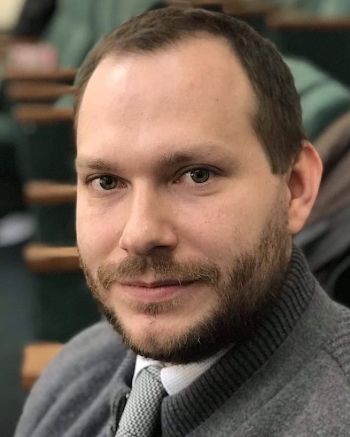 Deputy Head of the Irpin Municipal Court of Kyiv Oblast
Deputy Head of the Irpin Municipal Court of Kyiv Oblast
Education and research. In 2011, he graduated from Yaroslav Mudryi National Law Academy.
Professional life. The candidate started his professional career in 2008 as a specialist at the Commercial Court of Kharkiv Oblast, where he held the position of an assistant judge from 2009 to 2013.
In 2013, he was appointed as a Judge of the Izium Municipal and District Court of Kharkiv Oblast, where he worked until 2018. From June 2017 to October 2018, he served as the Court Chairman. The five-year term of office of Judge Mykhailo Odariuk expired in October 2018. The candidate was qualified for the position of the Judge, therefore, he was appointed as the Judge of the said Court a year later, in 2019.
From 2022 to the present day, the candidate has been working as the Judge of the Irpin Municipal Court of Kyiv Oblast and, in 2023, was appointed as a deputy Chairman of the Court for a three-year term.
Other important facts. In 2019, the Public Integrity Council (PIC) found evidence that Judge Odariuk did not meet the criteria of integrity and professional ethics. However, that conclusion was not considered by the HQCJ, as it came after the decision on Mr. Odariuk’s suitability for the position. He was appointed to the position indefinitely by a Decree of the President of Ukraine dated December 23, 2019.
The integrity of the candidate
Legality of the source of funds from the sale of property and cash gifts from relatives
In 2019, the PIC found that in the 2015 declaration, Mr. Odariuk indicated himself as a source of income from the disposal of real estate in the amount of UAH 149,000. The candidate’s relatives also systematically donated significant sums of money to the Judge: his mother in 2016 — UAH 145,000, in 2017 — UAH 150,000 (although according to the dossier, the total income of his mother in 2015–2017 was only UAH 546,987), in 2018 — UAH 150,000, in 2022 —UAH 98,500; his brother in 2019 — UAH 480,000.
This raises questions for the candidate:
- How could his mother provide him with financial assistance that largely covered her annual income?
- What was the purpose of gifts in cash received by the candidate from his relatives?
Use of an AUDI Q7 previously owned by the candidate
In 2013–2014, Mr. Odariuk owned an AUDI Q7, 2013 yom. However, according to electronic declarations for the years 2016–2018, the AUDI Q7 was in possession of the Judge based on the right of use, and the title belonged to Dmytro Volodymyrovych Kukurudza.
This raises questions for the candidate:
- What was the reason for Mr. Kukurudza’s granting Mr. Odariuk the long-term right of use of the car that was previously owned by Mr. Odariuk?
Alleged use by his wife of an undeclared luxury car, Mercedes Benz GLE 350d
The Judiciary portal contains information that in 2020 Inna Odariuk (full name matches the initials of the candidate’s wife) filed a lawsuit to cancel the decision of a patrol police inspector to bring her to administrative liability for driving a Mercedes Benz GLE 350d onto a tram track. Although the court upheld the lawsuit, another important thing is that the candidate declared a car of the same make only in 2022, where he indicated that his wife had purchased it in 2020. However, such a car was not declared in the candidate’s 2020 and 2021 e-declarations.
This raises questions for the candidate:
- Did his wife violate road traffic regulations under the above circumstances?
- If so, why was the Mercedes Benz GLE 350d she was driving not reflected in Mr. Odariuk’s respective declarations?
The candidate paid his wife for services rendered by her.
The 2021 e-declaration indicates that the candidate’s wife received UAH 1,124,120 from him as income from business activities. However, it is unclear what specific services the entrepreneur rendered.
This raises questions for the candidate:
- What were the reasons and nature of the services paid by Mr. Odariuk to his wife?
The candidate did not specify how exactly his judicial activities suffered interference.
Mr. Odariuk’s declaration of integrity shows that in 2014–2018 there were cases of interference with his work as a judge. However, the candidate did not provide any explanation for that fact at the end of the declaration, although he had the right to do so.
This raises questions for the candidate:
- What were the reasons for such instances, and under what conditions did interference with Mr. Odariuk’s activities take place?
- Why did the candidate fail to provide clarifying information about such instances? Wouldn’t this indicate his desire to hide such information?
Professional ethics of the candidate
Mr. Odariuk believed that visits to the TOT should not be taken into account when assessing candidates for judicial positions.
The Judicial Bulletin No. 11, dated November 29, 2019, published an article by Khrystyna Poshelyuzhna, “Put Your Money Where Your Mouth Is.” It states that the periodical’s editorial board has obtained the Analysis of Conclusions and Information provided by the PIC as part of the qualification assessment of judges in 2019. This analysis was prepared, among others, by Judge Mykhailo Odariuk.
The article also includes the following excerpt from the analysis: “The double standards applied by the PIC, in this case, indicate that Council members do not personally consider the temporarily occupied territories or the Autonomous Republic of Crimea to be the territory of Ukraine, as they delimit our country based on the territorial principle. Moreover, the Constitution of Ukraine guarantees freedom of movement, and, therefore, the statement by PIC members that a judge violated their own indicators by departing from the territory of Ukraine to the temporarily occupied territory of Ukraine is unacceptable and arbitrary.”
This raises questions for the candidate:
- Given that one of the criteria of the Unified Integrity Indicators is the absence of facts of a person visiting the temporarily occupied territories and the territory of the aggressor state without crucial necessity when their presence there is justified only by urgent life circumstances, does Mr. Odariuk support his previous conclusions?
The candidate did not admit that he had been prosecuted for violating road traffic regulations.
On November 14, 2022, a traffic violation report was drawn up against Mykhailo Odariuk. The candidate appealed the decision on the grounds that he considered himself innocent. However, the appellate court overturned the decision of the first instance court in favor of the candidate and found that Mr. Odariuk had actually violated road traffic regulations, which was confirmed by a video provided by a representative of the patrol police. At the same time, in his integrity declaration, the candidate only indicated that such a decision was canceled by the local court but did not mention that the appellate instance upheld it.
This raises questions for the candidate:
- Did Mr. Odariuk provide truthful information in his statement of claim that he did not commit an administrative offense and in his declaration of integrity that he was not held administratively liable for it?
The secondment of a candidate to another court could harm the consideration of cases in the court where he worked.
In 2020, the HCJ denied secondment to Mr. Odariuk to another local court in Kharkiv, as only 4 Judges actually administered justice in his court with a staff of 10. Judge Odariuk had 18 criminal and 30 civil cases under his direct jurisdiction, with some cases remaining without consideration for a long time. The HCJ pointed out that the Judge’s secondment would significantly increase the workload of the Court and reduce public access to justice.
This raises questions for the candidate:
Why did Mr. Odariuk request a secondment to another district court in Kharkiv if it would have led to such negative consequences?
Deputy Head of the Irpin Municipal Court of Kyiv Oblast
Olena Chernova
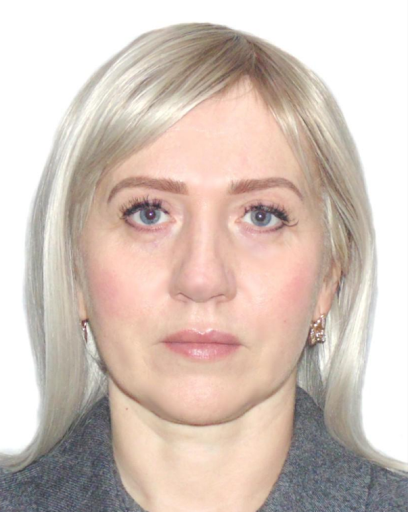 Judge of the Zolochivskyi District Court of Kharkiv Oblast (seconded to the Irpin Municipal Court of Kyiv Oblast)
Judge of the Zolochivskyi District Court of Kharkiv Oblast (seconded to the Irpin Municipal Court of Kyiv Oblast)
Education and research. In 1998, she graduated from Yaroslav Mudryi National Law Academy of Ukraine with a degree in legal studies.
Professional life. The candidate started her career in 1991 as an archivist at the Kyivskyi District Court of Kharkiv. In 1992, she became a court session secretary, and in 1993 — a senior secretary of the Court.
In 2001–2003, she worked as a leading specialist in judicial statistics at the Kharkiv Oblast Department of Justice. In 2003–2004 she worked as a chief specialist at the Office of the State Enforcement Service. In 2004, she was promoted to the position of the Head of the HR and Civil Service Department.
In 2005–2007, she became the Head of the Human Resources and Civil Service Sector of the State Enforcement Service of Kharkiv Oblast. After that, until 2011, she held the position of Deputy Head of the Main Department of Justice in Kharkiv Oblast.
Until October 2012, the candidate was the Head of the HR and Civil Service Department of the State Enforcement Service.
In October 2012, Olena Chernova was appointed as a Judge of the Petrovskyi District Court of Donetsk for the first time. In 2016, she was transferred to the Zolochivskyi District Court of Kharkiv Oblast, which she also chaired in 2017 and 2020–2022. In 2022, the candidate was seconded to the Irpin Municipal Court of Kyiv Oblast.
Other important facts. In 2016, the candidate was in the territory of the Russian Federation at the burial place of her close relatives.
The integrity of the candidate
Using an apartment in Kyiv on the basis of an “oral agreement”
The 2023 e-declaration of candidate Olena Chernova shows that since September 2022 she has been using a 68.9-square-meter apartment in Kyiv owned by Andrii Mykhailovych Hrin. The declaration contains an “oral agreement on residence” as the basis for using the apartment.
This raises questions for the candidate:
- How did the agreement appear? What are the terms of this agreement? Is Andrii Hrin a connected person to the candidate? If the accommodation is payable, how much does the candidate spend on it?
Unknown sources of special-purpose assistance exceeding UAH 250,000
The 2023 e-declaration of Ms. Chernova shows that she received UAH 184,700 and UAH 84,100 of special-purpose financial assistance from individuals not listed as close relatives in the candidate’s questionnaire. Two of the persons listed as providers of such assistance are unknown to the candidate.
This raises questions for the candidate:
- For what purpose did she receive the money as special-purpose assistance?
- What are the circumstances of the candidate’s acquaintance with the individuals providing special-purpose assistance?
- Does the candidate not think that receiving money from unidentified individuals casts doubt on her integrity and incorruptibility?
Professional ethics of the candidate
Visiting the territory of the Russian Federation after 2015
According to Ms. Chernova’s file, she was in Russia in April 2016 to “visit the burial place” of her close relatives. In her explanations, the candidate assured that she did not visit or communicate with Russian public authorities and their representatives at that time and that she did not and does not engage in actions or statements that would support or justify Russia’s military aggression. At the same time, the level of urgency of the need to visit the territory of the aggressor state in accordance with clause 17(6) of the Unified Indicators for Assessing Judicial Integrity and Professional Ethics of a Judge.
This raises questions for the candidate:
- According to Ms. Chernova, how urgent was the need to visit the territory of the Russian Federation in 2016?
Judge of the Zolochivskyi District Court of Kharkiv Oblast (seconded to the Irpin Municipal Court of Kyiv Oblast)






